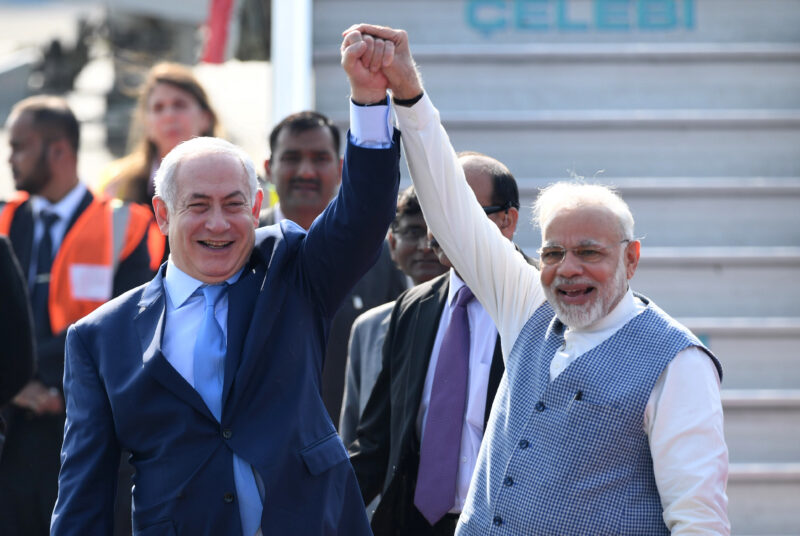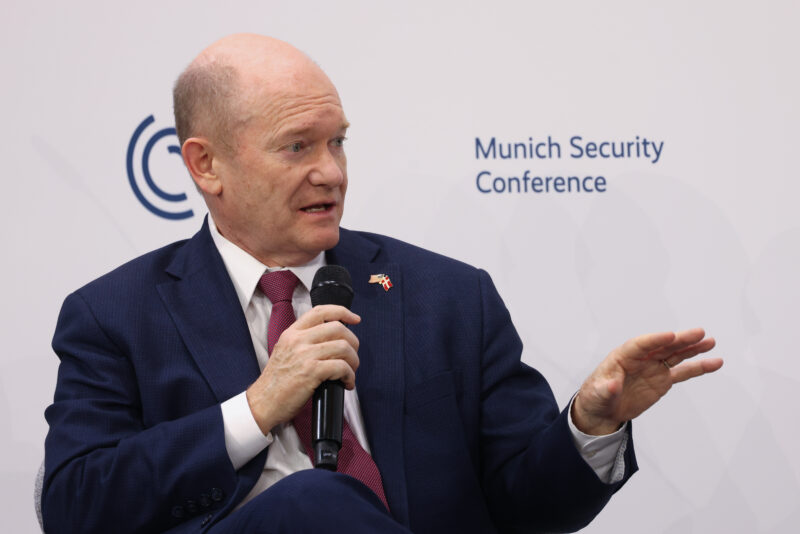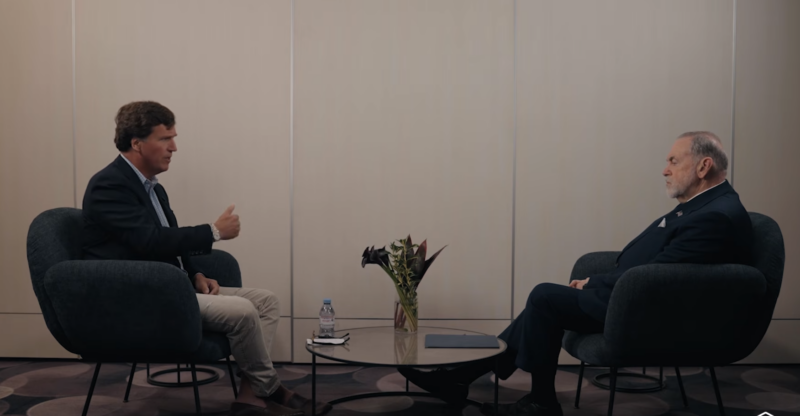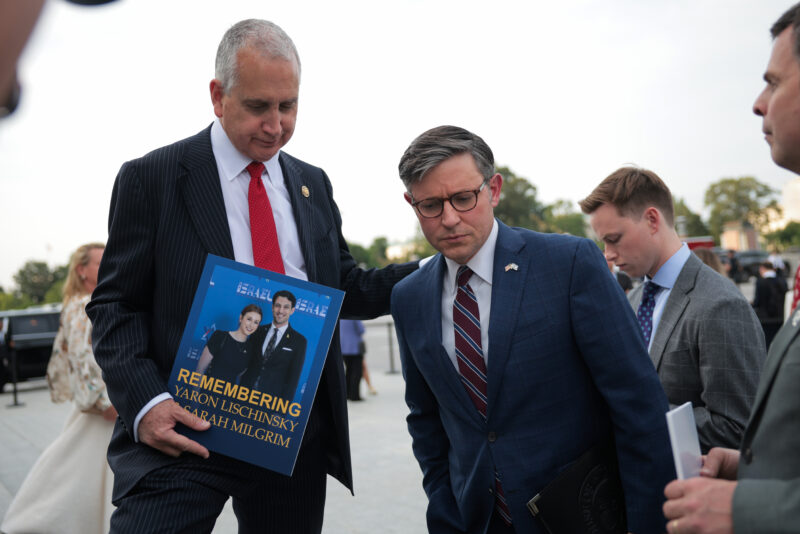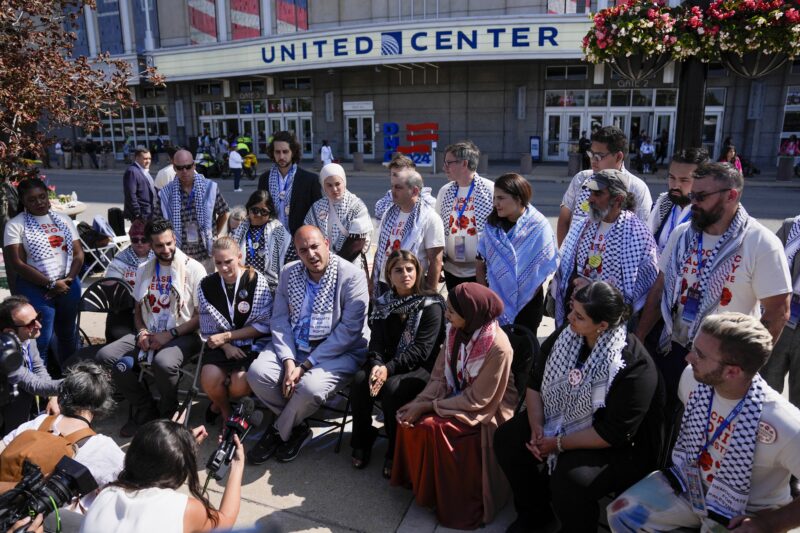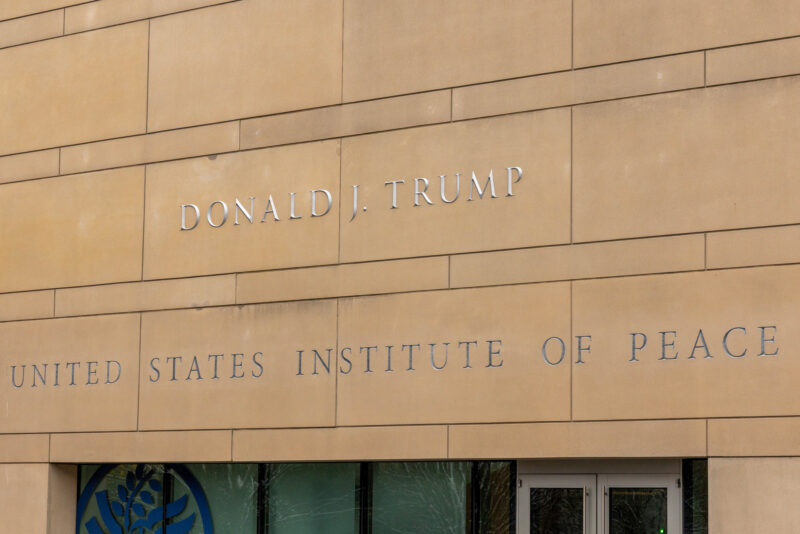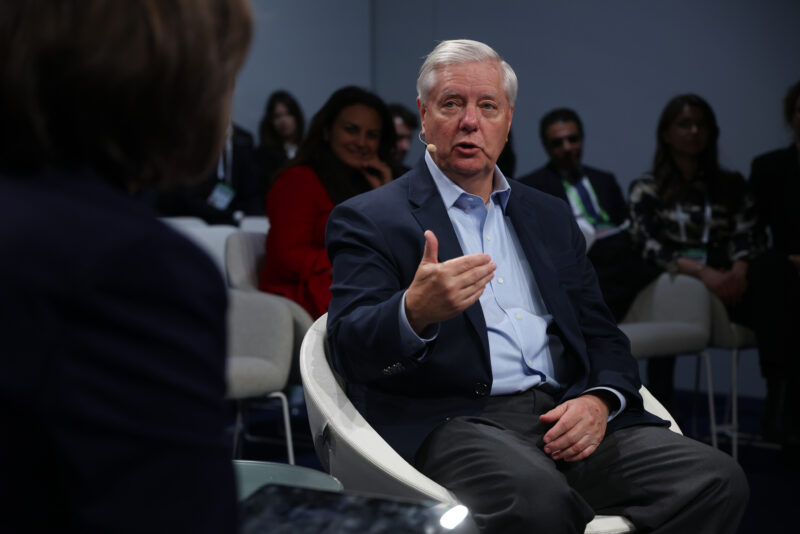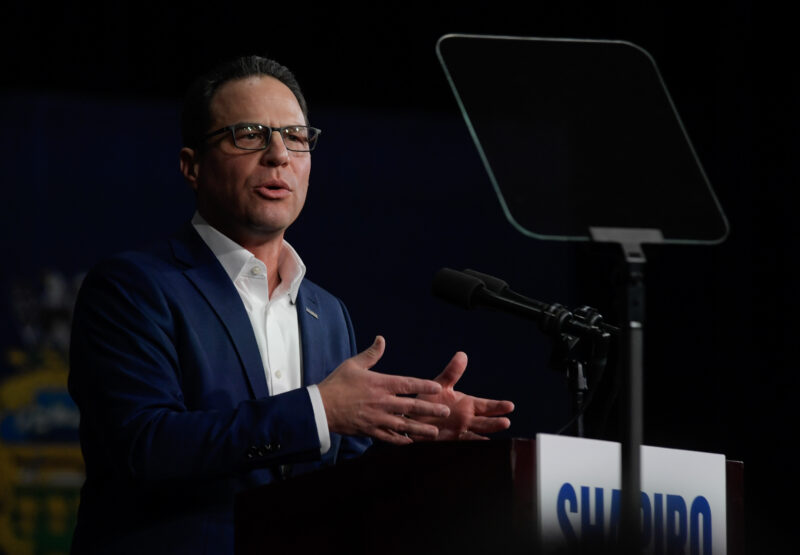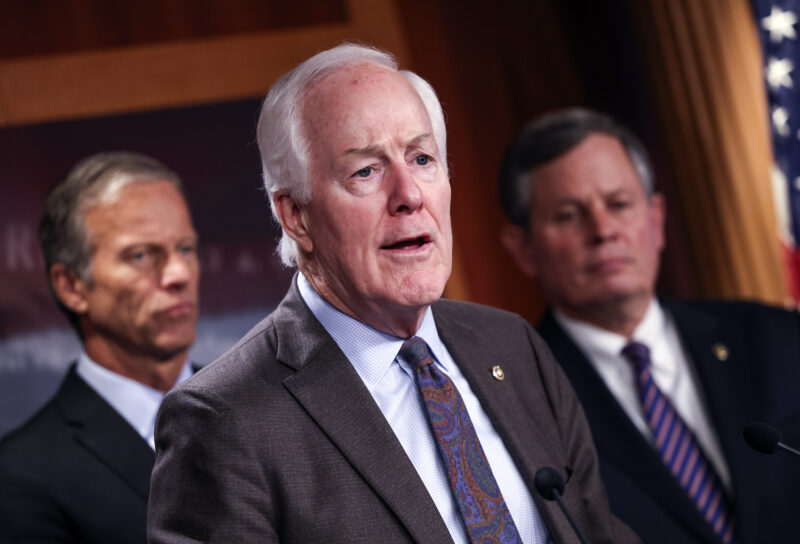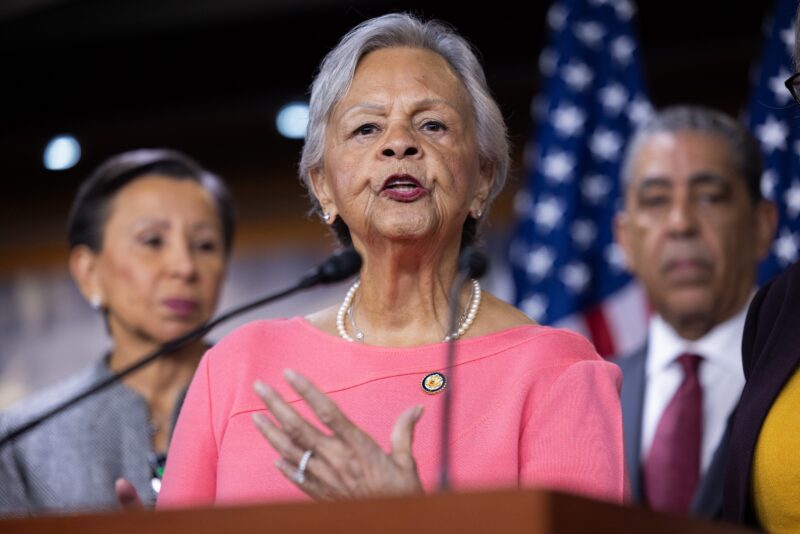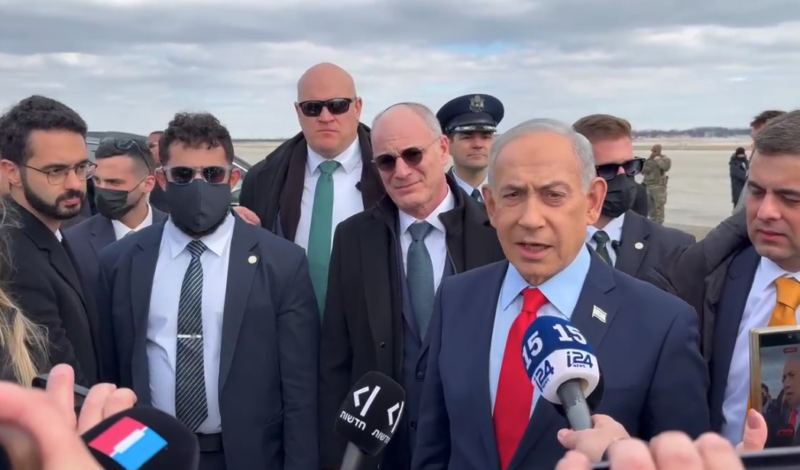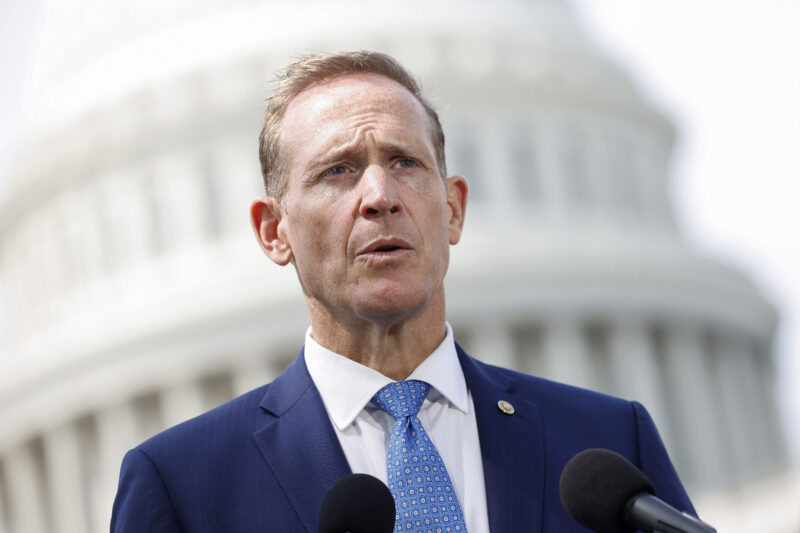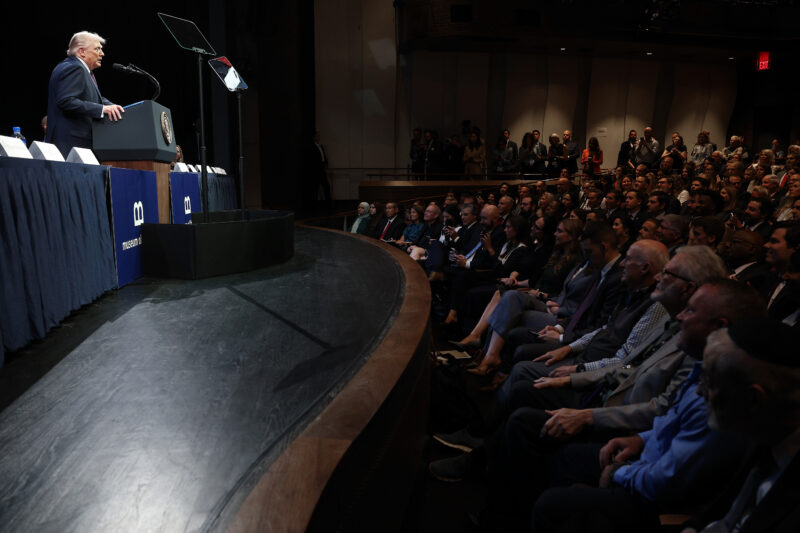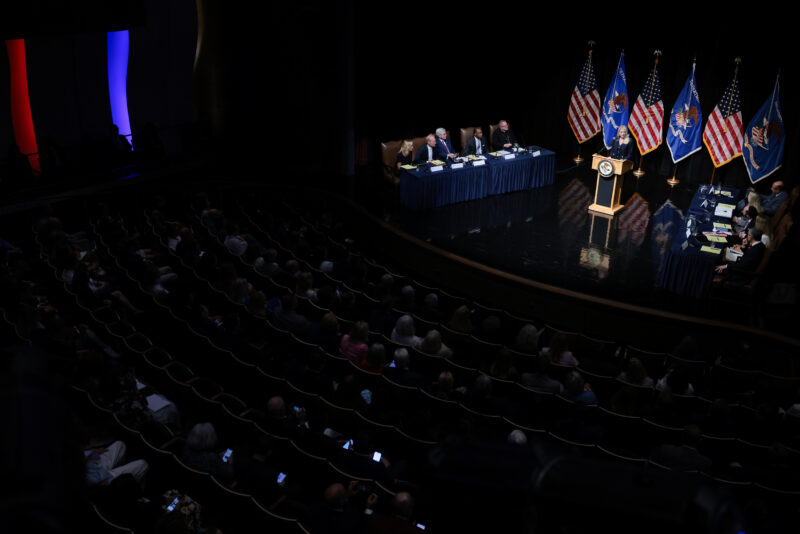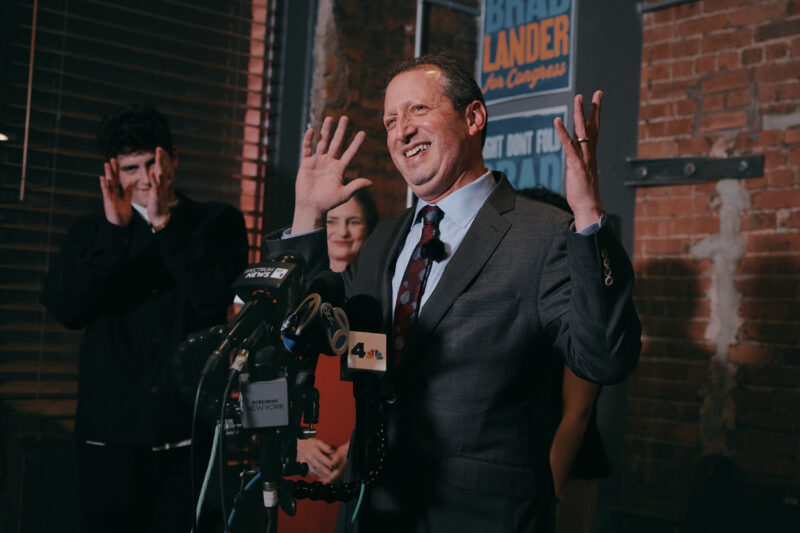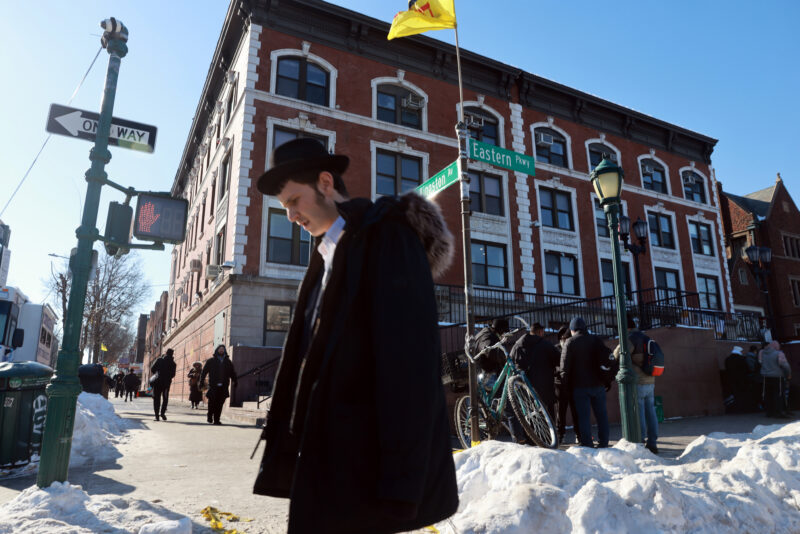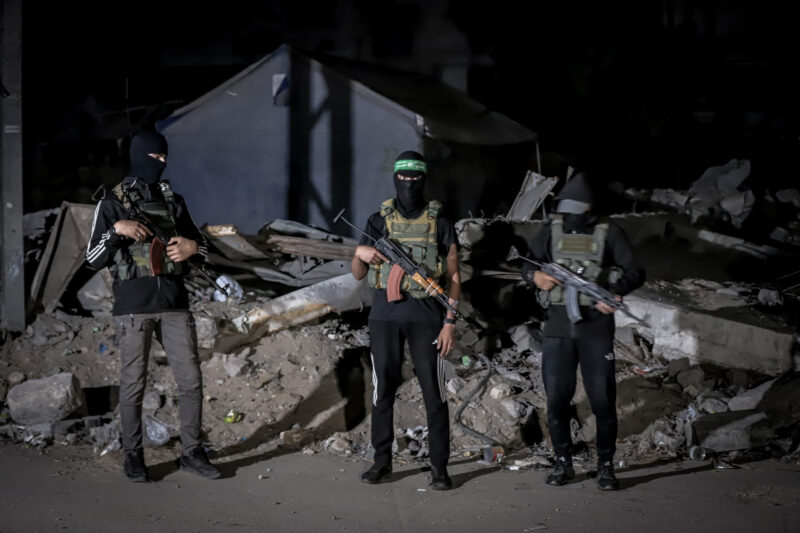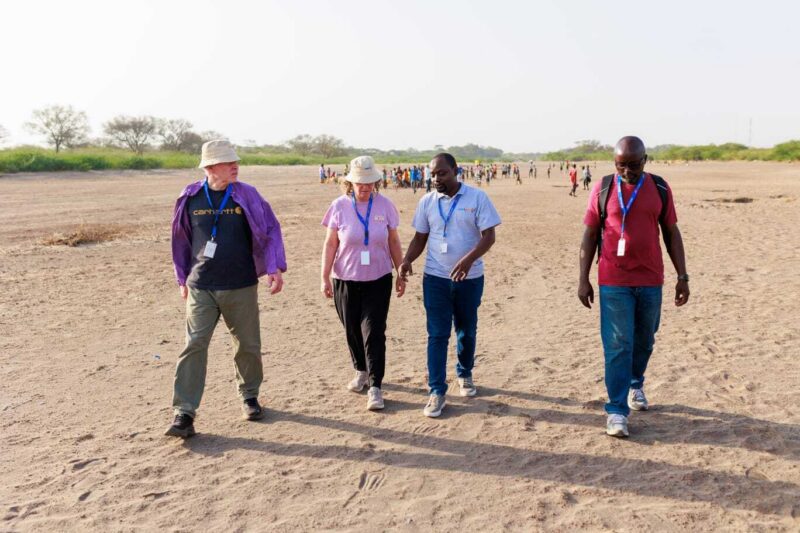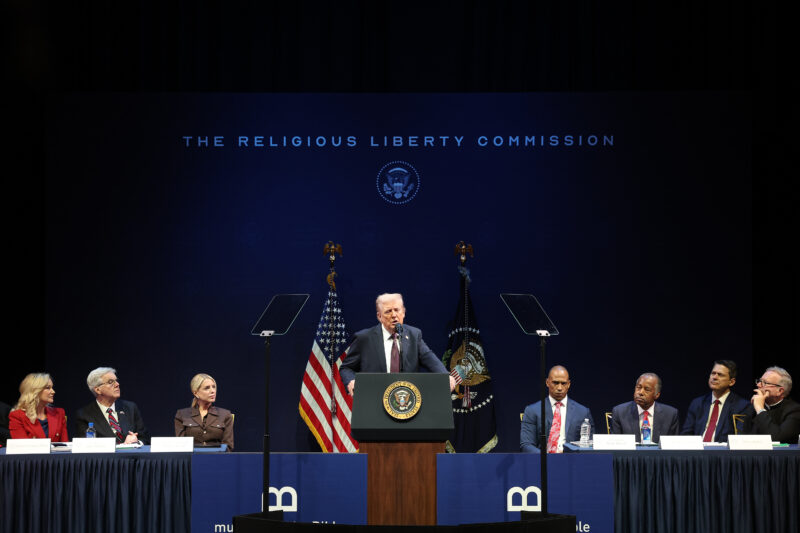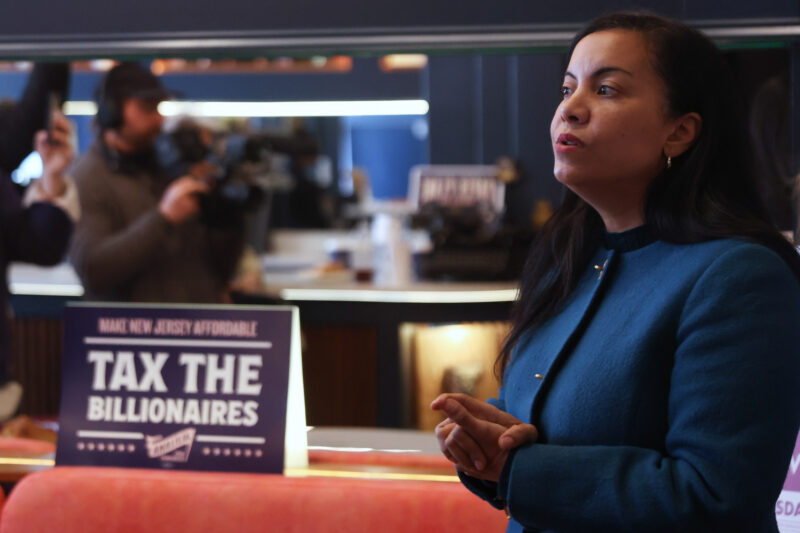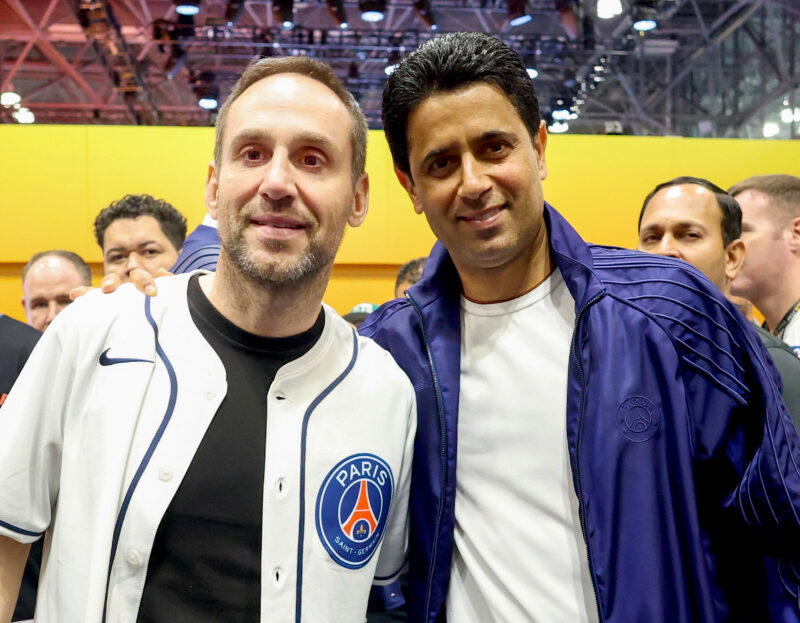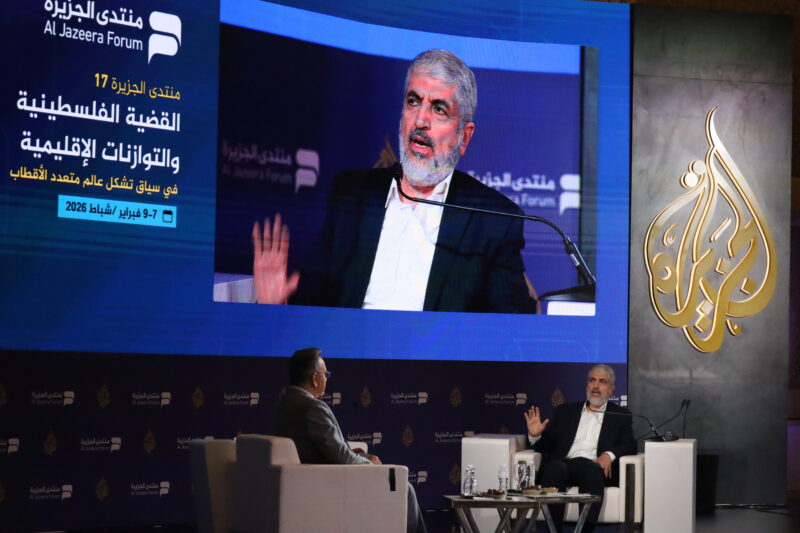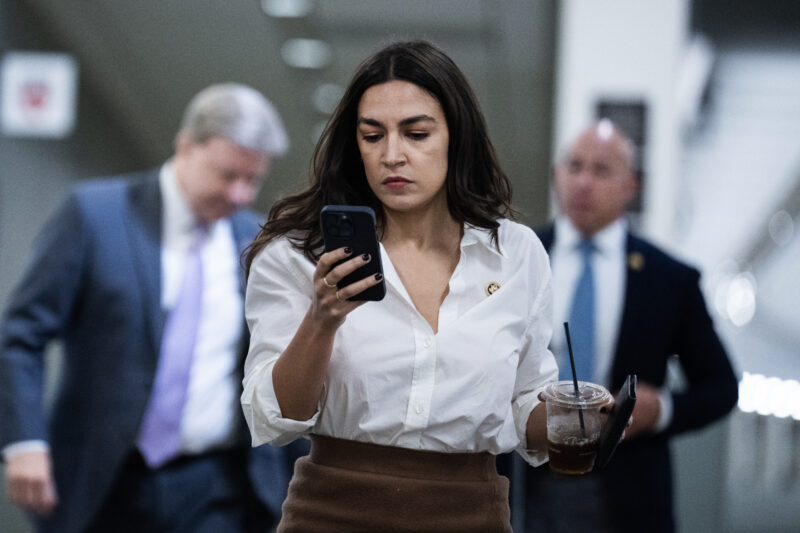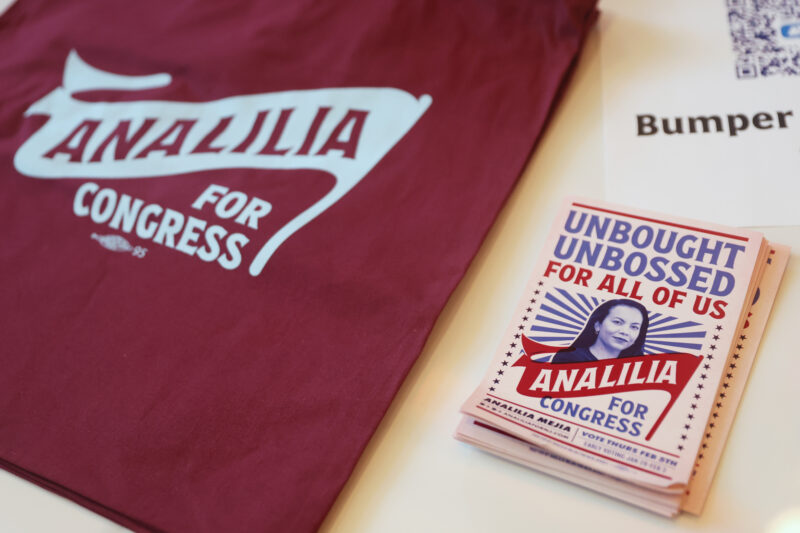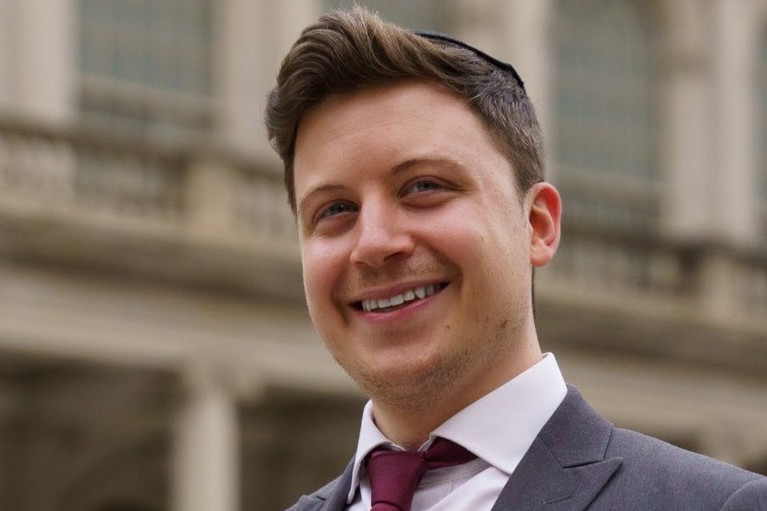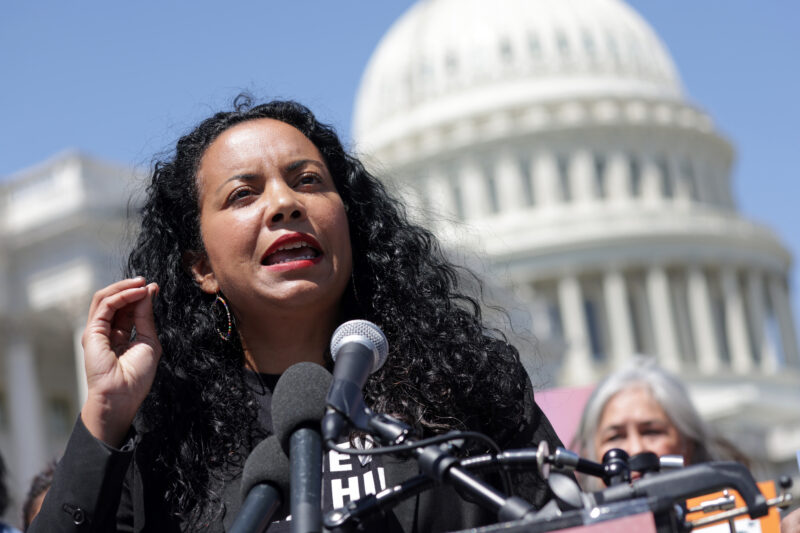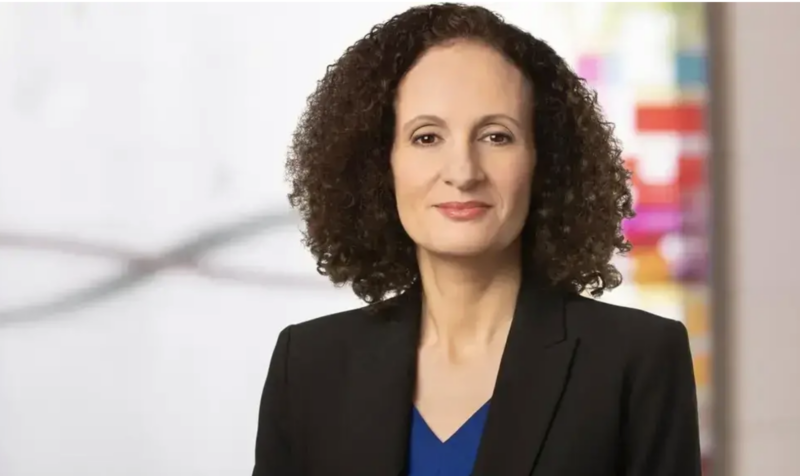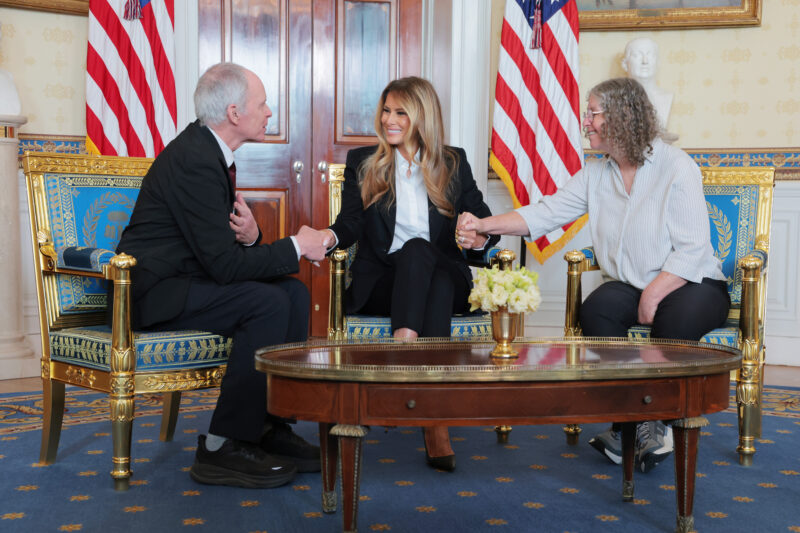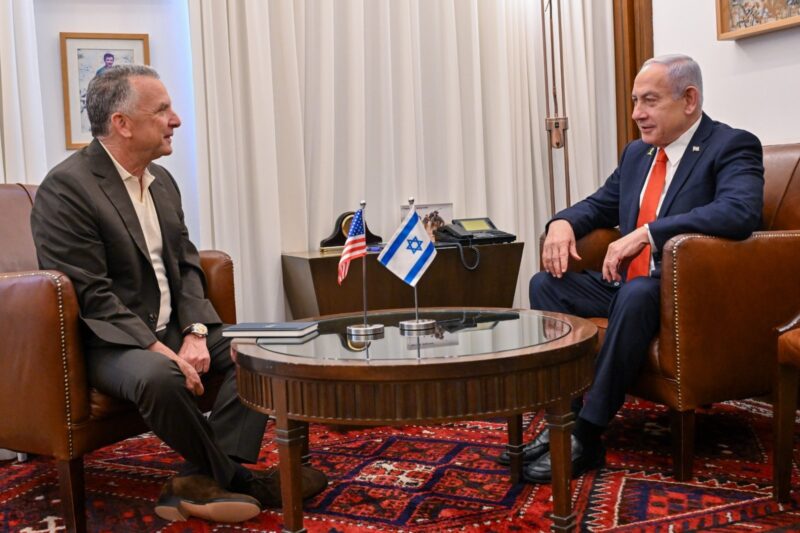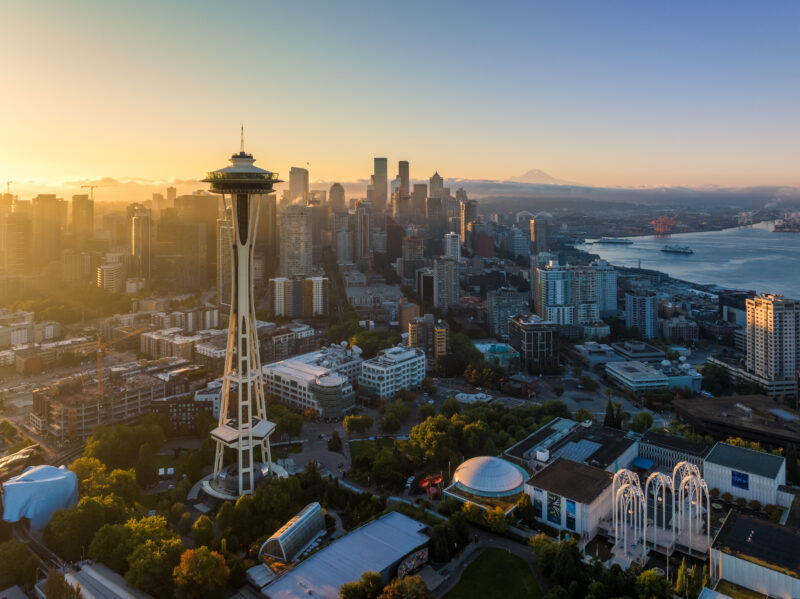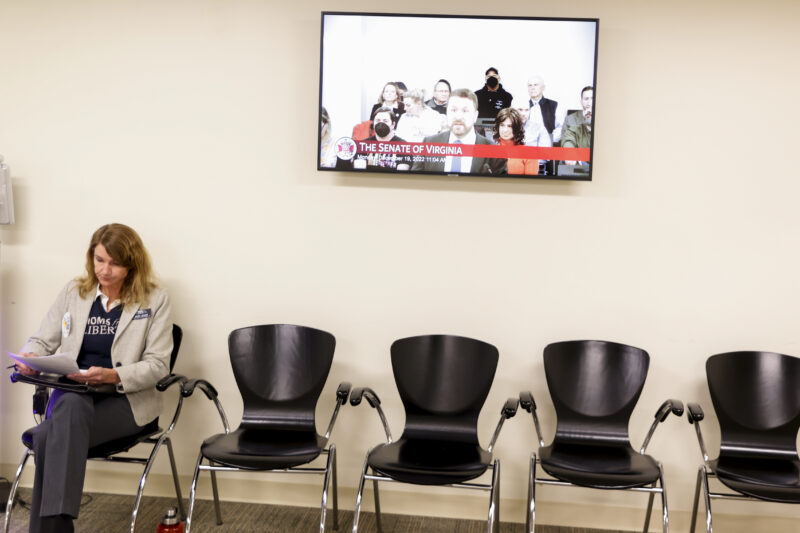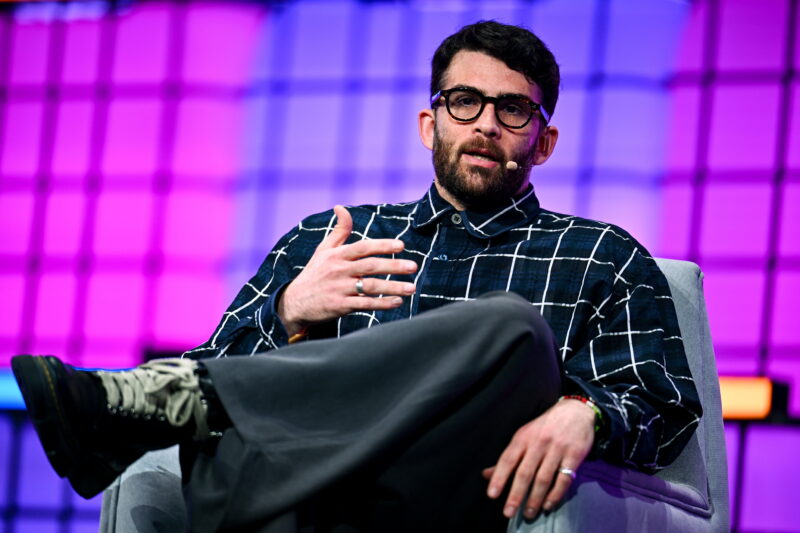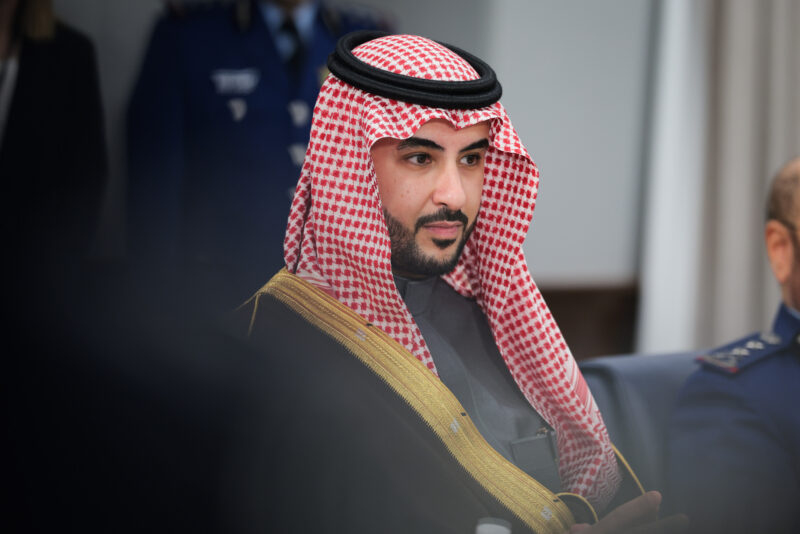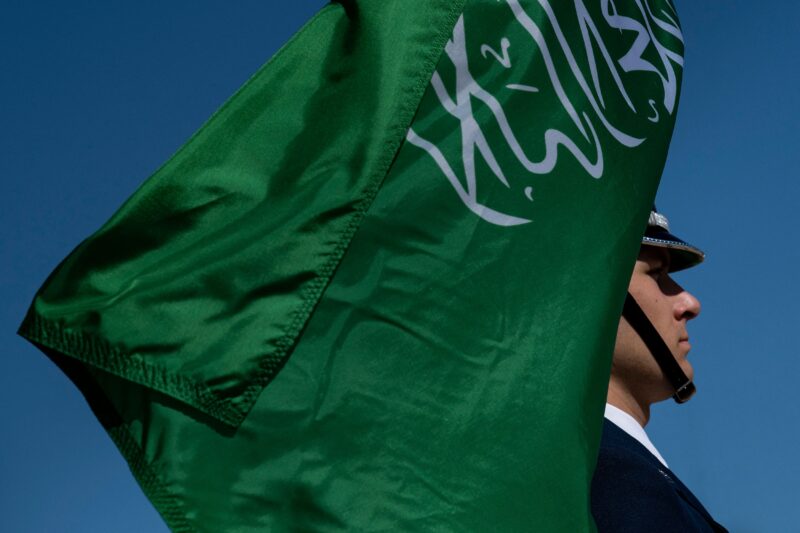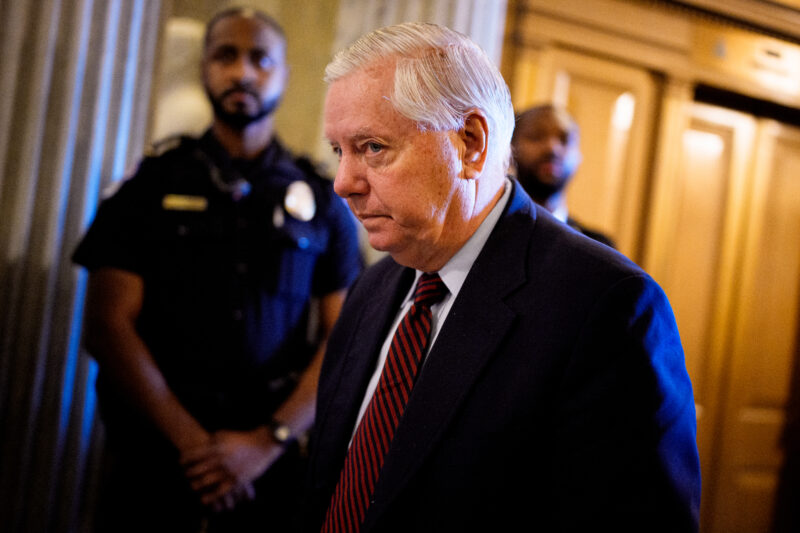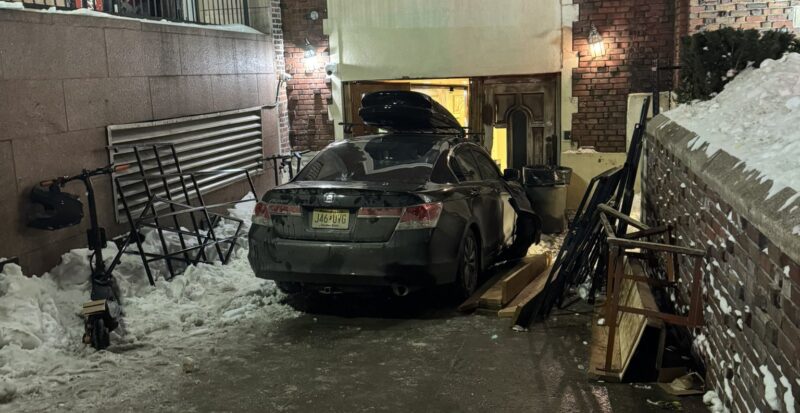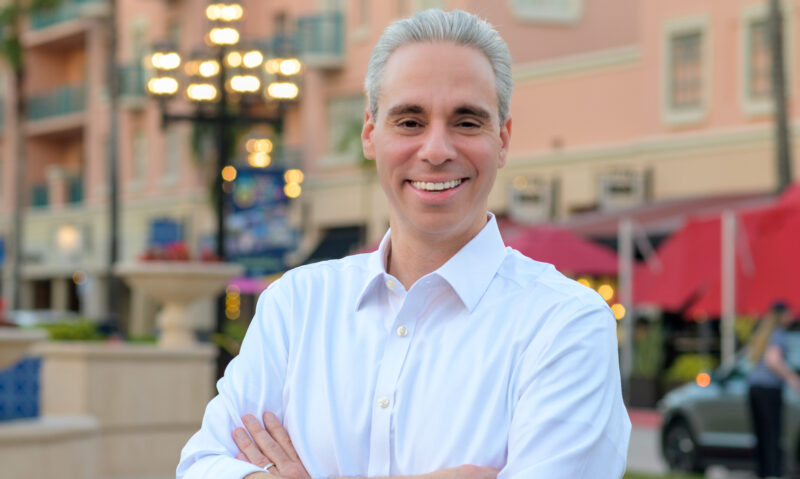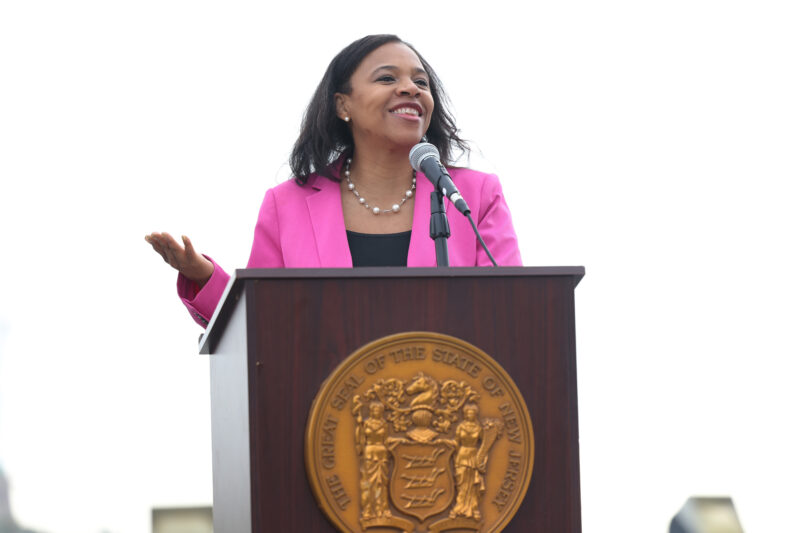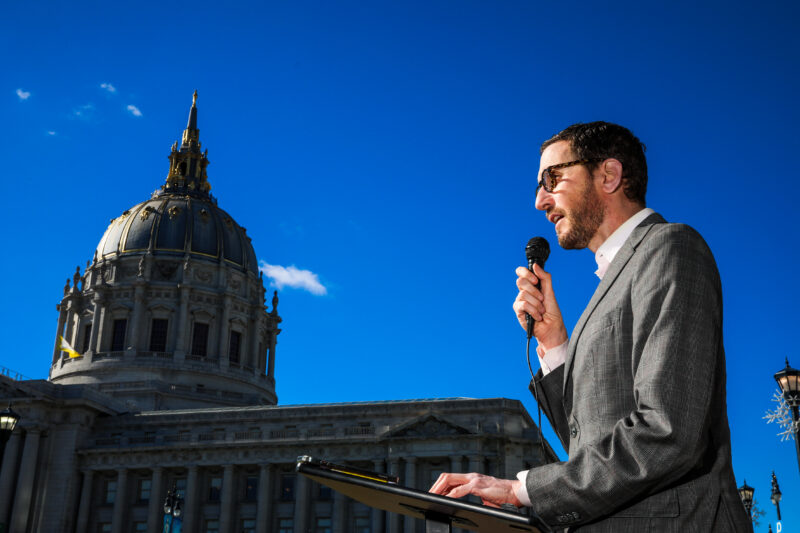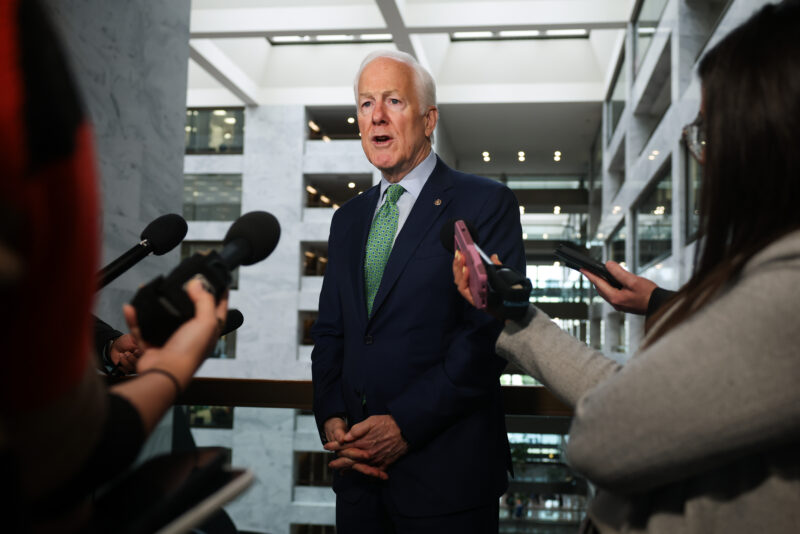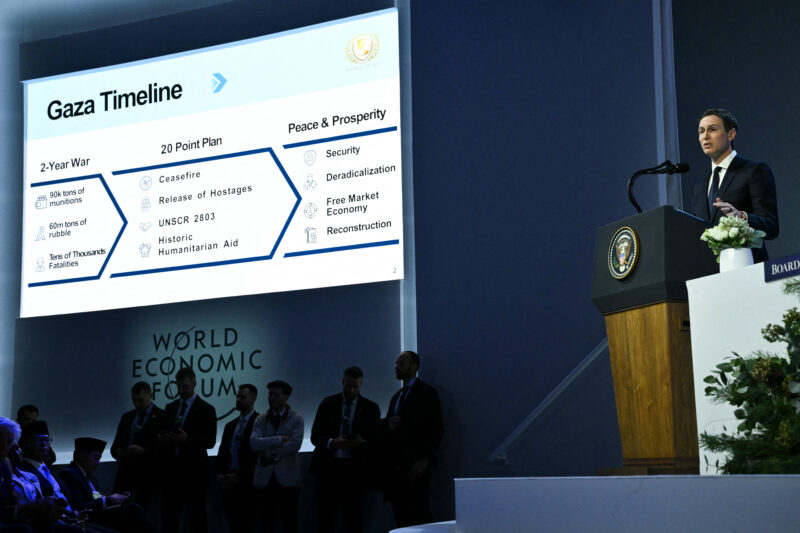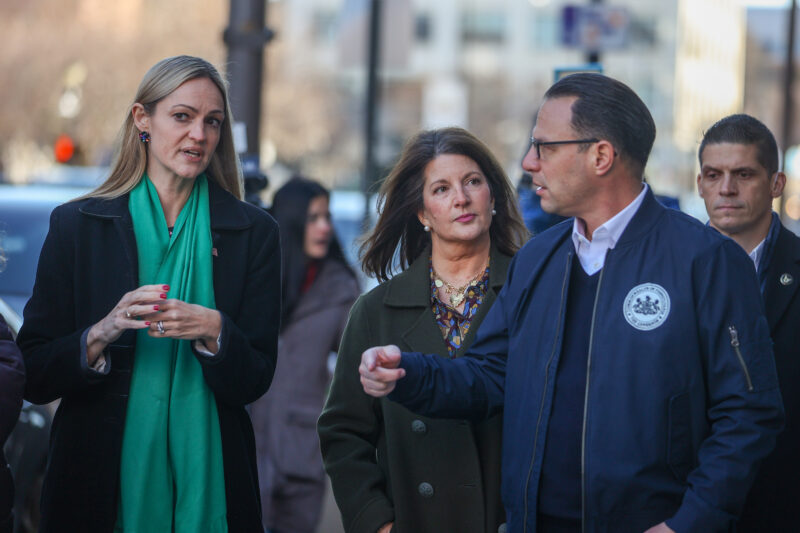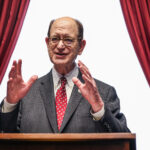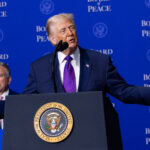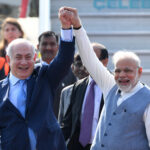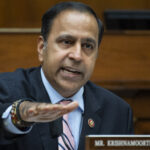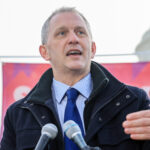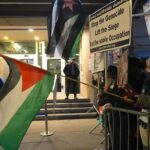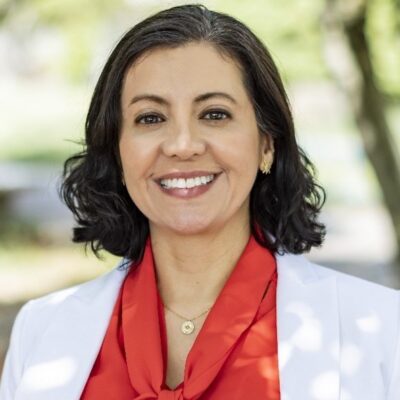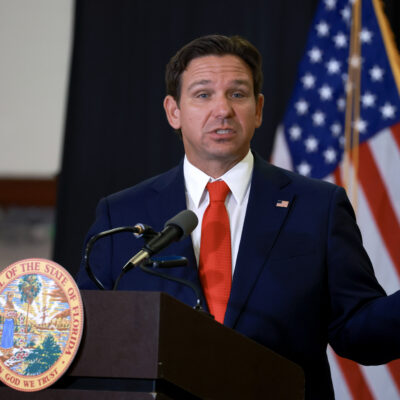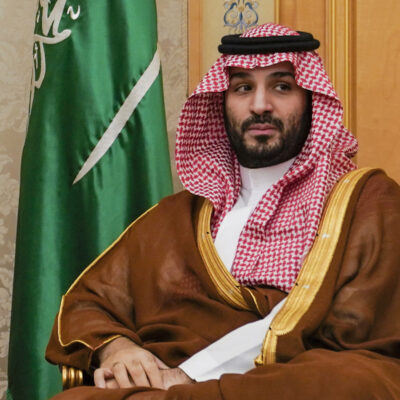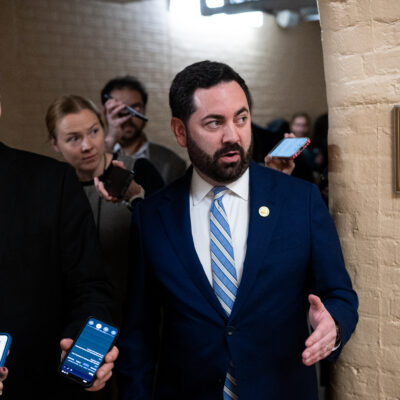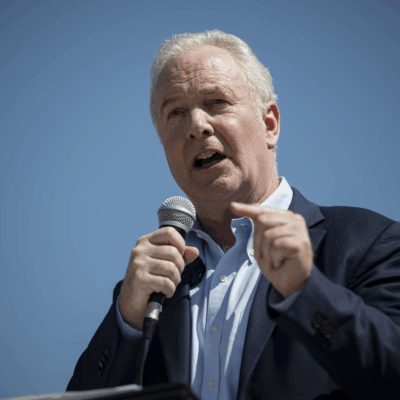Sen. Lankford: Turkey, Qatar should be limited in Gaza reconstruction roles
The Oklahoma senator also told JI that his colleagues have more work to do on raising awareness about efforts to designate the Muslim Brotherhood as a terrorist organization

Andrew Harnik/Getty Images
Sen. James Lankford (R-OK) speaks during a news conference on Capitol Hill on May 1, 2024 in Washington, DC.
As the international community looks to advance the ceasefire plan in Gaza, Sen. James Lankford (R-OK) emphasized the need for continued pressure from countries like Turkey and Qatar on Hamas to comply with the terms of the ceasefire requiring it to disarm.
But he also warned that there should be limits on the ways in which Turkey and Qatar are involved in the future of Gaza, arguing that they should have no role in certain sensitive areas, even as they remain involved in reconstruction work.
Lankford, in an interview with Jewish Insider this week, said that Hamas’ release of the final remaining deceased hostages will be an inflection point necessitating movement into the next phase of the ceasefire plan presented by the United States.
“The requirement for Hamas to disarm is still there. It has to be there, both for the people that live in Gaza that are Palestinian and for the security of the entire region,” Lankford said.
He said that ensuring that Hamas disarms, something it has thus far refused to do, will require military, diplomatic and financial pressure, particularly from countries like Turkey and Qatar that have been Hamas patrons.
“If the Turks want contracts to be able to rebuild in Gaza, which they do, then that’s not going to happen until Hamas is actually disarmed, so Turkey’s got to decide, ‘Do you want those contracts to be able to rebuild or not?’ If they do, then here’s what that requirement is going to be,” Lankford said.
He said that providing a higher level of security and freedom of movement on the Israeli-controlled side of Gaza will also help to increase pressure on Hamas. And he said that any further violations of the ceasefire agreement by Hamas should be met with “immediate, serious consequences.”
Turkey and Qatar’s roles in the future of Gaza should be limited to certain sectors, Lankford added, given the countries’ hostility to Israel and support for Hamas. He said he’s comfortable seeing Ankara assist with reconstruction, but it should not be involved in running hospitals, schools or mosques or in rebuilding the economy.
“We’re going to have to figure out what are roles that they can do and they cannot do,” Lankford said. “There are certain roles they just should not be a part of.”
He said he’s not yet able to name specific countries that he would be comfortable seeing taking on more sensitive tasks — though he noted Indonesia’s interest — and said it’s “going to take a multinational force.”
“It’s going to be a trusted force. It’s not going to be American forces in the middle of that. It needs to be a trusted force from the region as much as possible, but that’s going to have to be somebody that’s tenacious enough to say, ‘No, we’re going to actually bring some stability to this area,’” Lankford said. “And I don’t know who that is yet.”
He said that there are “plenty of Arab countries that don’t like the Muslim Brotherhood and don’t like all of its offshoots” — including Hamas — but the question will be whether they’re “willing to be able to put their sons on the line” to confront the terrorist groups in Gaza.
Asked about efforts to counter the Muslim Brotherhood at home — several of Lankford’s colleagues have introduced legislation to designate the group as a terrorist organization and have pushed for similar action by executive order from the White House — Lankford said that supporters of the effort have more work to do to raise awareness.
“I think the first issue for me is really to keep raising it, to be able to continue to raise awareness of it, because you’re not going to build momentum among 100 senators if it’s the first time they thought about it,” Lankford said. “So we’re going to have to build some of that momentum for a while.”
The Oklahoma senator, a co-chair of the Senate antisemitism task force, has also been outspoken about rising antisemitism on the “New Right” and was critical of the Heritage Foundation’s response to neo-Nazi Nick Fuentes’ recent appearance on Tucker Carlson’s podcast.
Asked about Carlson, Lankford said that he “can say whatever he wants to … but we also have a protected right to be able to speak back and to say we disagree on areas.”
“I think the worst case scenario is to just be able to leave it out there,” Lankford continued. He argued that providing counter-narratives to antisemitic talking points is crucial to stemming the tide of antisemitism on both sides of the aisle.
“If you get loud voices that say it and repeat it, people that just see it and don’t see a counter-narrative just accept it,” Lankford said. “We’ve got to make sure a counter-narrative is out there so that people actually hear a different opinion on it.”
Lankford, a Southern Baptist minister, objected to Carlson’s comments condemning Christian Zionists.
“To say those that support Israel that are Christians are ‘heretics,’ and are ‘the worst’ — I guess worse than Hamas and Hezbollah,” Lankford said. “That’s a bit of a bizarre statement to make, and I think we have a responsibility to be able to speak out and say, ‘Hey, I don’t agree with that.’”
“It seems that he is defining what Christianity is. And he has a right to be able to say whatever he wants to, but I also have a right to be able to live biblical Christianity as well, and to be able to see the scripture in the full context of what it says,” Lankford continued. “So I want to speak out on that as well.”
Asked about Vice President JD Vance’s exchange last week with a student who asserted that Jews are seeking to persecute Christians — a narrative that Vance did not address or dispute — Lankford said that leaders, including in the White House and the Trump administration, need to speak up “for the most basic issue of religious liberty.”
He said it’s important for people to be able to hold and live their own faiths and to also protect the ability of others to practice different faiths. “What’s interesting on that dialogue is, I’ve literally not met a Jewish person that wasn’t very protective of religious liberty,” Lankford added. “It’s literally the opposite of that question.”
Please log in if you already have a subscription, or subscribe to access the latest updates.




